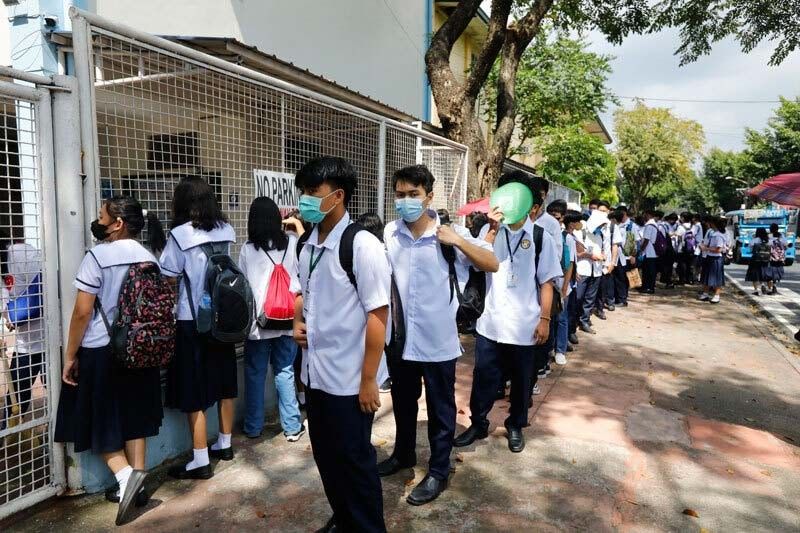Teachers' group scores lack of 'tangible' goals in DepEd Basic Education Report

MANILA, Philippines — Teachers are trained to list objectives and standards in lesson plans but the Department of Education's Basic Education Report failed to include "specific and time-bound" plans to address issues in the school system, the Alliance of Concerned Teachers said Tuesday.
The group said the departmen should have set targets on how it plans fix problems with the K to 12 curriculum as well as a shortage of personnel.
The BER was a mere "summary of the promises already articulated by (Vice President Sara Duterte)'s leadership in the past months (...) which remain general promises that lack specific action plans and definite targets," ACTChairperson Vladimir Quetua said.
Quetua said that Vice President Sara Duterte’s assessment of the current state of education "is nothing new" as findings on students’ poor academic competencies and other deficiencies in the delivery of education were already reported by international agencies. Duterte is concurrently education secretary.
"The lack of an evidence-based learning assessment conducted after the pandemic-induced school lockdowns … should have been one of DepEd’s priority when face-to-face classes were resumed last August as it would have provided a more accurate approximation and appreciation of our current predicament," Quetua said.
DepEd's plans for shortages, gaps
Duterte enumerated in the BER several plans to address shortages and gaps in the education system. Among others, she said that DepEd will review the K to 12 curriculum and provide teachers with pedagogical training to improve students’ competencies in reading, science and mathematics.
This was after Duterte cited the “alarming” results of the 2018 Programme for International Students Assessment that found 81% of Filipino students struggled to solve basic math problems and read texts of moderate length, while 78% could not comprehend or draw conclusions from scientific phenomena.
Quetua said that while Duterte vowed to provide teachers with laptops and DepEd offices with library hubs and e-classroom packages, these did not come with "concrete targets."
"All it can boast of are the creation of new structures in its bureaucracy such as the School Infrastructure and Facility Strand and the Voucher System Management Office, which performance remains to be seen," Quetua added.
Shortage of guidance counselors
Duterte also vowed to hire more guidance counselors and increase their salaries to provide students with more access to "relevant guidance and psycho-social services managed and delivered by mental health professionals."
While the teachers welcomed this pronouncement, ACT Secretary-General Raymond Basilio said that Duterte should have provided "an exact figure" to address the shortage of counselors.
"Sad to say, Duterte’s promise is difficult to hold to account. She didn’t mention a number. Next year, what if only five guidance counselors are hired? We should have seen DepEd’s agenda by the numbers," Basilio said in a press conference held by ACT on Monday.
DepEd in 2020 only had 1,096 active guidance counselors. Although there were nearly 5,400 positions for the profession, just 20% of the positions were filled.
Over years, the shortage of guidance counselors has forced some schools to hire 'guidance teachers' who do not have the license to provide students with psychosocial support.
K to 12 review still not publicly available
Quetua said that DepEd is also already "very late" in finalizing its full review of the K to 12 curriculum.
"The DepEd has been talking about its K-12 review since 2018 but no document of the comprehensive review has been made available to the public, and as...Duterte said, the review of Senior High School curriculum is still underway," Quetua added.
In the BER, Duterte said that DepEd’s partial review of the senior high school program has revealed a congested curriculum, missing pre-requisites for certain subjects and learning competencies that "catered to high cognitive demands."
Duterte added that industries have hesitated to hire senior high school graduates even after they have undergone work immersion.
However, Quetua said that they opposed the “push to prolong the work immersion of senior high school students” as this essentially provides businesses with free labor from students.
"The education system failed to protect our SHS students against exploitation as they were made to work for long hours without pay or any allowance under the guise of the trainee system," Quetua added.
- Latest
- Trending

































